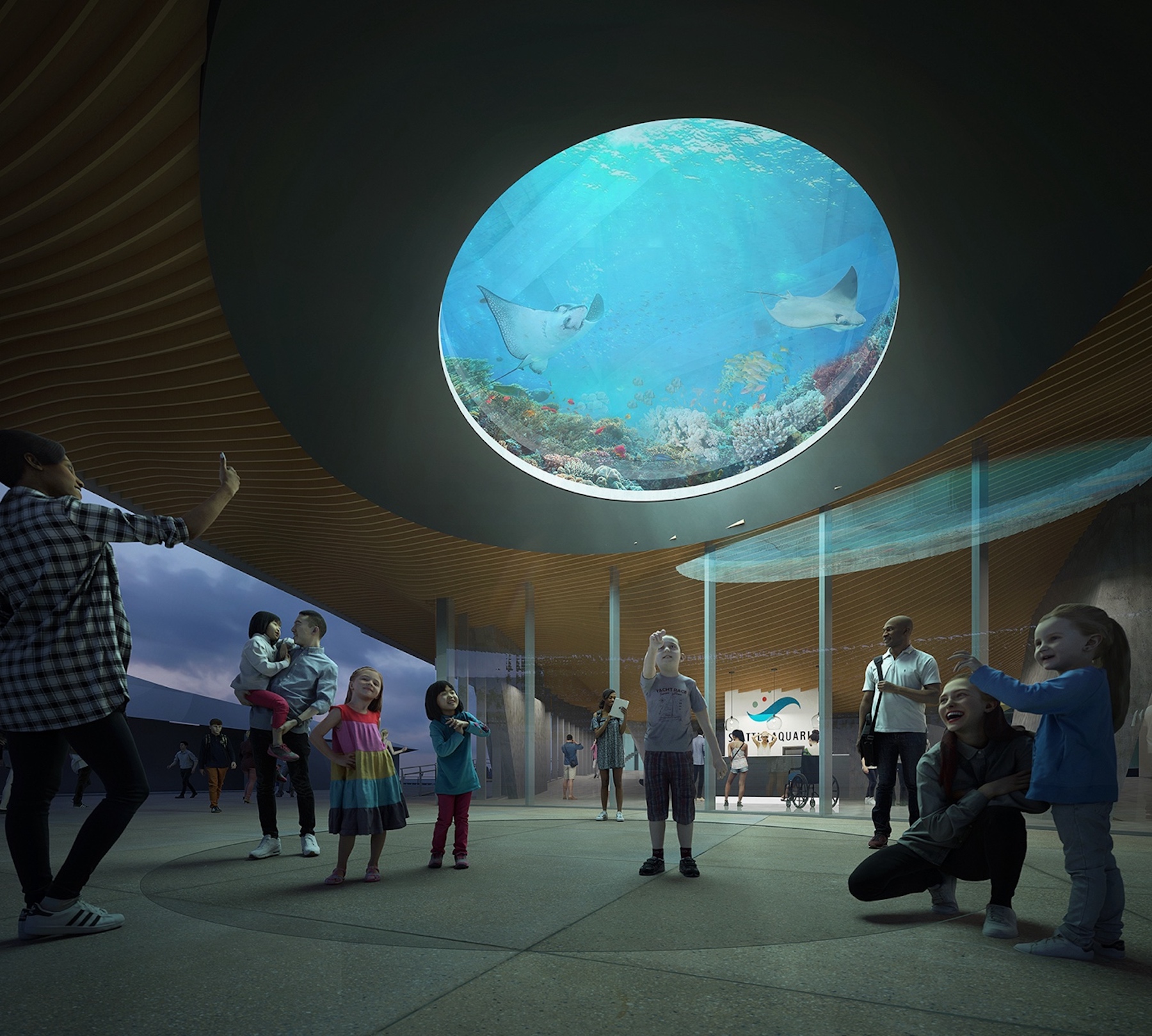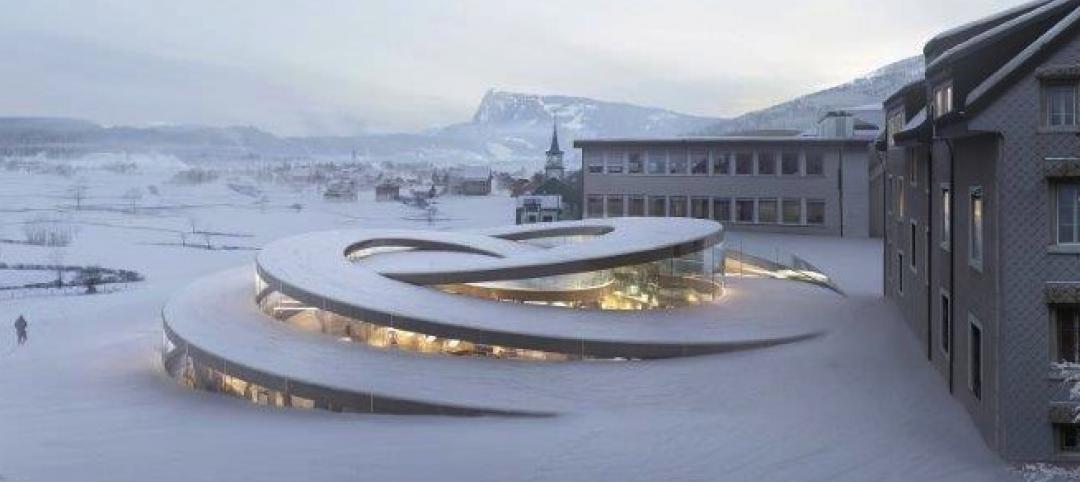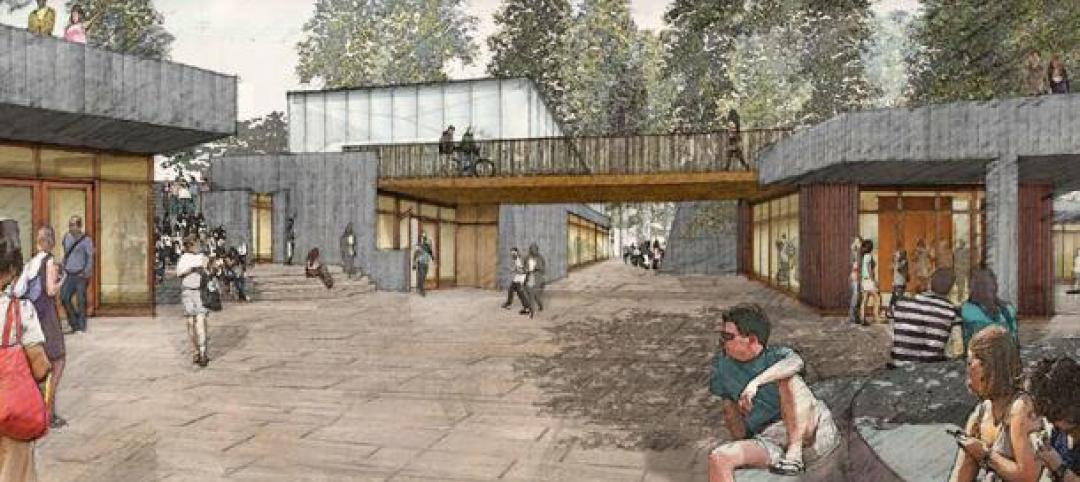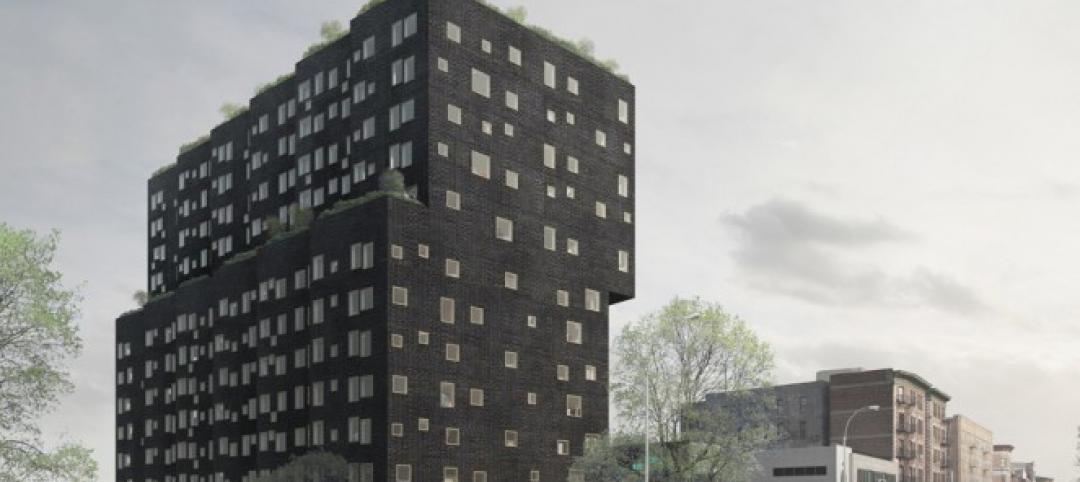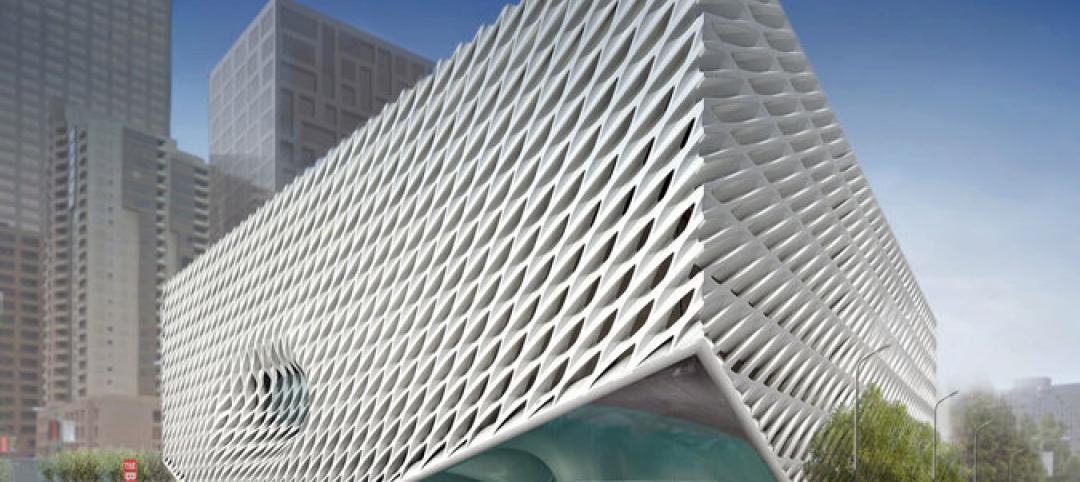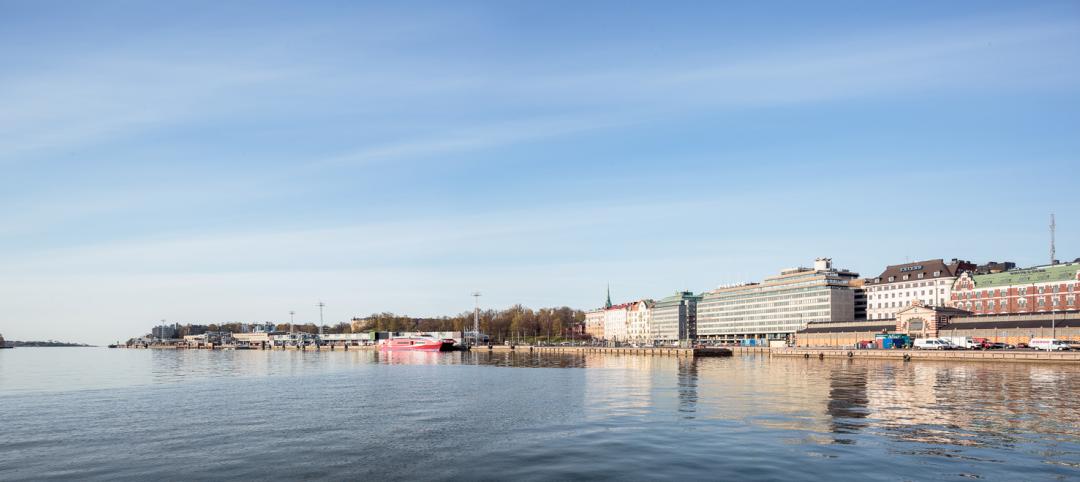Seattle Aquarium’s new Ocean Pavilion, currently under construction, features several exhibits that examine the human connection with the Earth’s oceans. The 49,000 sf Ocean Pavilion has 19 living exhibits organized around The Reef, a new 362,000 gallon, two-story living habitat that is visible from five unique perspectives.
The Reef depicts a biodiverse Coral Triangle reef community, featuring an expansive, nearly 30-foot-wide domed view on the ground floor and additional viewing windows on an upper gallery. Cantilevered over the Pavilion’s entrance, it also features the “oculus”—a 16-foot wide portal that allows passersby to stand beneath and view the exhibit without paying admission.
The aquarium’s new pavilion is “the spectacular northern focal point of the reimagined Seattle waterfront,” according to Thinc, the firm that designed the exhibitions. LMN Architects is the design architect on the project, and is collaborating with Thinc on the exhibitions. “Thinc views every possible part of the Aquarium as useful context for building relationships with the public. Even the parts normally hidden from view consciously reveal the tank habitat vessels and back of house, all designed both for functionality and beauty.”
“To imagine an aquarium built around ethical human relationships with the ocean means throwing out the playbook on how you design aquariums,” said Tom Hennes, founder and principal of Thinc. “We can touch people deeply and enrich their relationship with the natural world, and we can also be a vital instrument of social change that catalyzes public engagement toward a thriving future.”
The Pavilion exhibition is organized into eight areas: 1) the entry/exit; 2) One Ocean Hall; 3) At Home in the Ocean; 4) The Archipelago (lower level view); 5) Window on The Reef (a dramatic, 30-foot wide domed window); 6) The Archipelago (upper level); 7) The Reef (upper level with three distinct views); and 8) Behind the Scenes (includes Jelly Nursery and Programming Area).
Dramatic living exhibits, engaging storytelling, and immersive multimedia installations will envelop visitors in the webs that connect ocean life to the complex arenas of human activity. The design was focused on realizing the Aquarium’s vision to make ocean conservation a global imperative, a community value, and a deeply personal priority for all. The Ocean Pavilion provides new opportunities for the Aquarium’s community to learn about the connections between Seattle’s local waters and the world’s oceans.
A collaboration with Coast Salish Tribal and Urban Native community members, as well as Indo-Pacific conservation partners, informed Thinc’s treatment of narratives and the design of the Ocean Pavilion. The design process included focused workshops and listening sessions with Coast Salish elders and tribal youth, and Urban Native community members, who contributed to the outcome.
The Ocean Pavilion is scheduled to open in 2024.
On the Building Team:
Owner and/or developer: Seattle Aquarium Society
Exhibition Designer: Thinc Design
Design architect & Architect of Record: LMN Architects
MEP engineer: PAE
General contractor/construction manager: Turner Construction Company
Horticulture Consultant: Zoo Horticulture Consulting and Design
Lighting Consultant: Palazzo Lighting
Technology Consultant: Teecom
Focus Tank LSS: Tenji
Development Manager: Shiels Obletz Johnsen (SOJ)
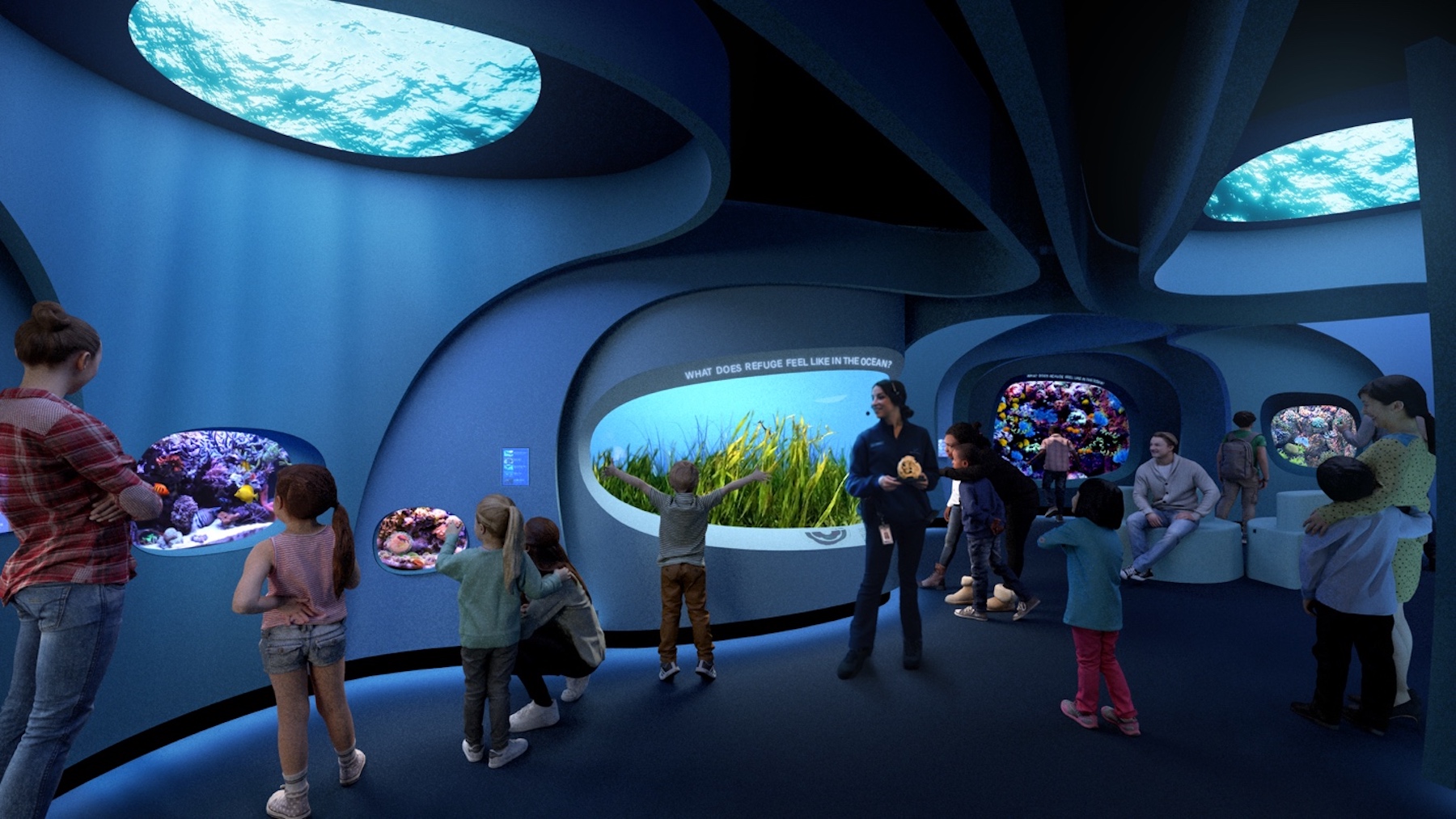
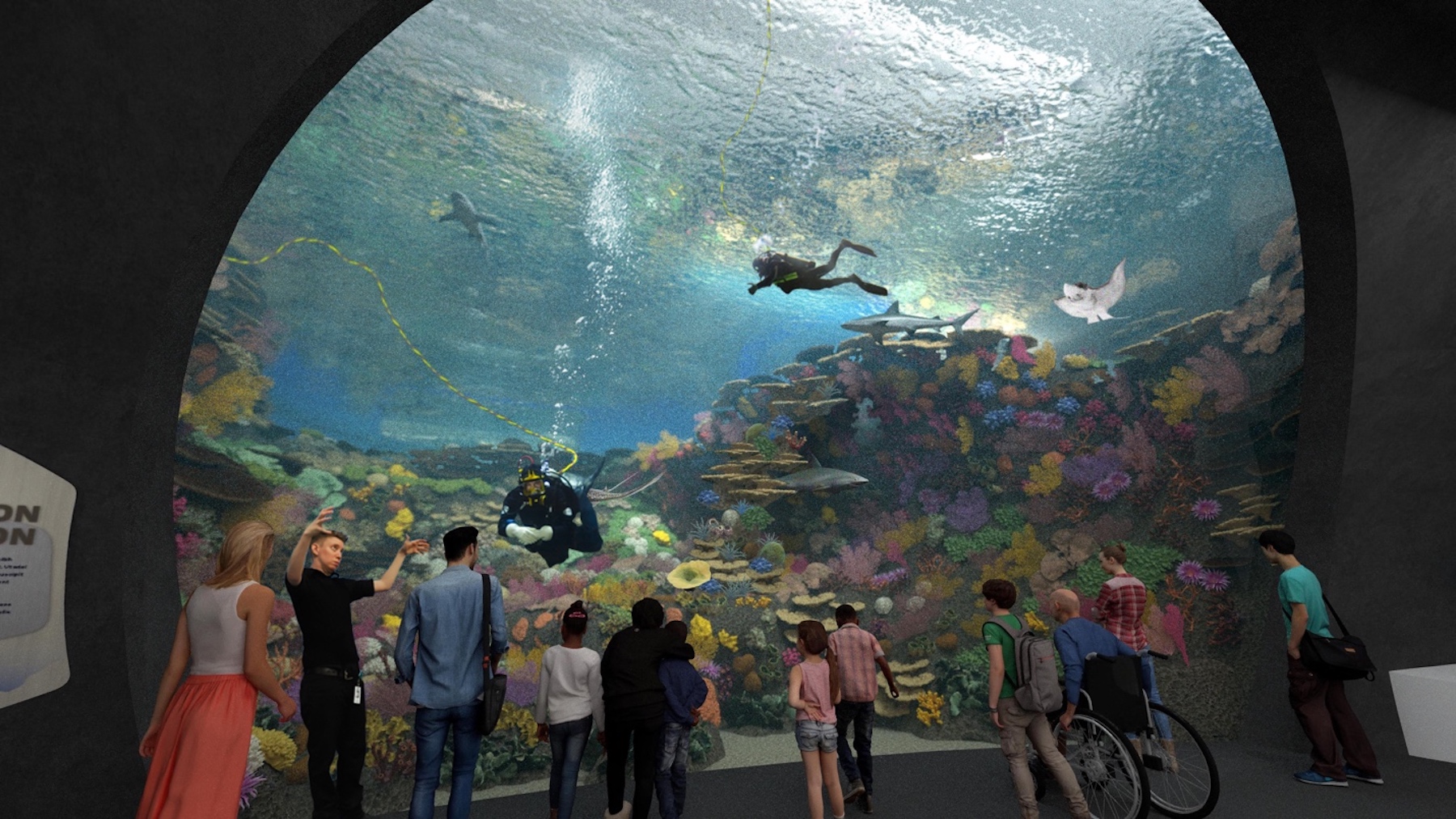
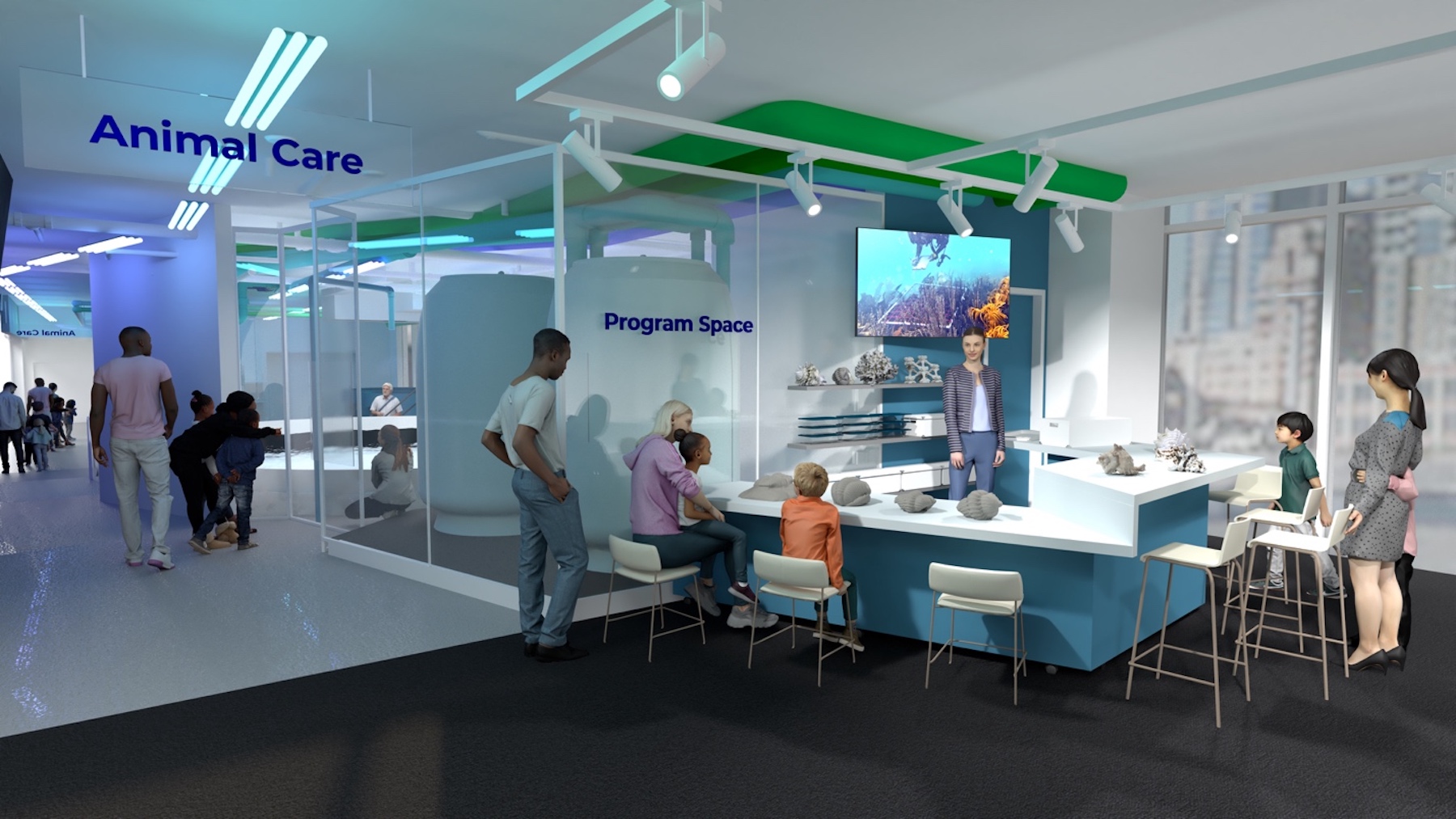
Related Stories
| Jun 18, 2014
Arup uses 3D printing to fabricate one-of-a-kind structural steel components
The firm's research shows that 3D printing has the potential to reduce costs, cut waste, and slash the carbon footprint of the construction sector.
| Jun 16, 2014
6 U.S. cities at the forefront of innovation districts
A new Brookings Institution study records the emergence of “competitive places that are also cool spaces.”
| Jun 13, 2014
First look: BIG's spiraling museum for watchmaker Audemars Piguet
The glass-and-steel pavilion's spiral structure acts as a storytelling device for the company's history.
| Jun 12, 2014
Tod Williams Billie Tsien Architects' design selected for new UCSC facility
The planned site is a natural landscape among redwood trees with views over Monterey Bay, a site that the architects have called “one of the most beautiful they have ever worked on.”
| Jun 12, 2014
Austrian university develops 'inflatable' concrete dome method
Constructing a concrete dome is a costly process, but this may change soon. A team from the Vienna University of Technology has developed a method that allows concrete domes to form with the use of air and steel cables instead of expensive, timber supporting structures.
| Jun 11, 2014
David Adjaye’s housing project in Sugar Hill nears completion
A new development in New York's historic Sugar Hill district nears completion, designed to be an icon for the neighborhood's rich history.
| Jun 9, 2014
Green Building Initiative launches Green Globes for Sustainable Interiors program
The new program focuses exclusively on the sustainable design and construction of interior spaces in nonresidential buildings and can be pursued by both building owners and individual lessees of commercial spaces.
| Jun 9, 2014
Eli Broad museum files $19.8 million lawsuit over delays
The museum, meant to hold Eli and Edythe Borad's collection of contemporary art, is suing the German company Seele for what the museum describes as delays in the creation of building blocks for its façade.
| Jun 4, 2014
Want to design a Guggenheim? Foundation launches open competition for proposed Helsinki museum
This is the first time the Guggenheim Foundation has sought a design through an open competition. Anonymous submissions for stage one of the competition are due September 10, 2014.
| May 29, 2014
7 cost-effective ways to make U.S. infrastructure more resilient
Moving critical elements to higher ground and designing for longer lifespans are just some of the ways cities and governments can make infrastructure more resilient to natural disasters and climate change, writes Richard Cavallaro, President of Skanska USA Civil.


